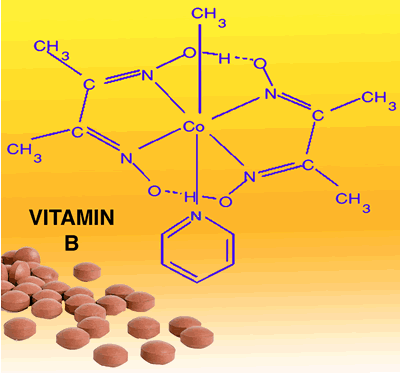Positive Health Online
Your Country

B Complex - The Answer To Good Mental Health?
listed in nutrition, originally published in issue 211 - January 2014
According to the World Health Organisation, 350 million people suffer from depression and it is the leading cause of disability worldwide. Being depressed in addition to having a physical illness means twice the likelihood of dying prematurely compared to physical symptoms alone.
A recent two month study using B vitamins involved 60 adults diagnosed with clinical depression or another depressive disorder. Participants given a B complex supplement showed significant and more continuous improvements in depressive and anxiety symptoms, compared to placebo. The symptoms of the depression were measured using the Beck Depression Inventory http://tinyurl.com/pkrzkf3 and the Anxiety Inventory.

B Vitamin Deficiency Signs
With the rapid development of ever more sophisticated (and expensive) new supplements, the importance of the humble B Complex can often be overlooked. Supplementation of B vitamins should always be considered for the all too common modern day afflictions of poor energy levels, brain fog, sluggishness, poor concentration and low mood. Often a visit to the GP, which should always be the first option, fails to find anything wrong and it is then that nutrition comes into its own.
Let’s go back to basics for a moment. Many of the B vitamins are involved in functions which impact directly on the brain and nervous system. We know that severe deficiency of vitamin B3 for example, causes Pellagra, a characteristic of which is dementia, whilst Beri Beri a condition involving multiple nerve degeneration results from B1 deficiency.
Paranoia, nerve abnormalities, depression, impaired memory, concentration and learning ability are all deficiency signs of B12. Whilst all these symptoms are the result of severe B vitamin deficiencies, most likely to occur when there is malnutrition, it is possible for levels to be sub optimal and still profoundly impact mood and mental function. In studies, for example, B12 and folic acid have been found to be low in depressives. Low folate is linked with poor response to anti depressant medication and treatment with folic acid improves response.
B Vitamins and the Stress Response
Under stress, adrenaline is produced by the adrenal glands. This is part of the “fight or flight” reaction and is designed to provide a short lived burst of energy to cope with a stressful situation. B12 is vital for the production of adrenaline so the required amount increases substantially under stress as does Vitamin B5 required for making the stress hormone cortisol. Together with vitamin C, vitamin B5 is found in higher concentrations in adrenal tissue than any other body tissue.
Vitamin B6 is required for making the calming neurotransmitter called GABA and for formation of other neurotransmitters, seratonin, dopamine and adrenalin.
B Vitamins and Sugar Blues
Another important mental related role for the B complex vitamins is their involvement in the metabolism of carbohydrates and therefore in maintaining healthy blood sugar balance. If supply of glucose to the brain is disrupted, a variety of mental symptoms such as mood swings, anxiety, depression, confusion, irritability, panic, forgetfulness and impaired concentration may occur. This can commonly happen in the absence of a traditionally diagnosed hypoglycaemic state.
Why Do Supplies of B Vitamins Become Easily Depleted in the Body?
- Since they are water soluble, B vitamins need replacing regularly in the body, due to urinary excretion. Tea, coffee, alcohol and excess dietary intake of refined carbohydrates and sugar particularly deplete B vitamins.
- Eating refined (white) carbohydrates and sugar uses up a large amount of b vitamins whilst not supplying any, compared to eating wholegrain foods which are a source of B vitamins. This can easily push the B complex “bank account” into debt.
- Prolonged stress will take its toll on reserves of b vitamins.
- Certain medications deplete B vitamins, for example the contraceptive pill leads to substantially increased needs for vitamin B6 and metformin commonly given to women with PCOS depletes B12.
- IBS and autoimmune digestive disorders such as celiac disease, Crohns disease and colitis particularly warrant looking at B vitamin status.
- In addition a person may have an individual genetic or metabolic reason why they don’t absorb a particular B vitamin very well. Take folic acid for example. There is a common genetic mutation (possibly present in up to 40 percent of population) in the MTHFR gene which leads to an impaired ability to metabolise folic acid and sufferers are more likely to experience depression as a result. The low folic acid causes high levels of a substance called homocysteine which damages blood vessels and nerve cells. As soon as B12, folate and B6 are supplemented, homocysteine levels fall.
Top Tips for Choosing an Effective B Complex Supplement
Not all B complex supplements are the same. It is important that the b vitamins are in their active forms ready to function in the body. Otherwise the body has to work hard to convert them, which it does not always do efficiently. For example up to 30 percent of the population may not be able to convert folic acid properly and therefore won’t benefit from a regular folic acid supplement. Look for these specific forms on the label of your B complex supplement:
- B2 as riboflavin-5-phosphate
- Folate as Methylfolate
- B6 as Pyridoxal-5-Phosphate (P-5-P)
- B12 as Methylcobalamin
References
Lewis JE, Tiozzo E, et al. Department of Psychiatry & Behavioral Sciences, University of Miami. The effect of methylated vitamin B complex on depressive and anxiety symptoms and quality of life in adults with depression. ISRN Psychiatry. 2013 Jan 21;2013:621453. doi: 10.1155/2013/621453. Print 2013. http://dx.doi.org/10.1155/2013/621453
Comments:
-
Rayana Maltezo said..
What would be the ideal daily dose of b-complex for a vegetarian diet?